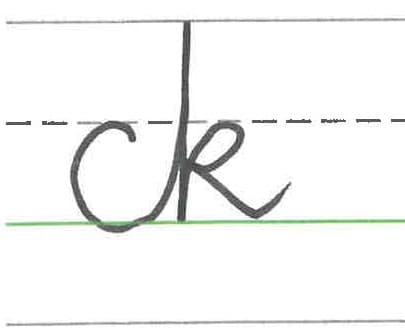Reviewing more high frequency words, no lead-ins
I can write high frequency words using cursive handwriting.
Reviewing more high frequency words, no lead-ins
I can write high frequency words using cursive handwriting.
These resources will be removed by end of Summer Term 2025.
Lesson details
Key learning points
- High frequency words are words that appear most frequently in written texts.
- Letters in the high frequency words will be joined using a range of joins depending on the letters in the word.
- You start at the correct starting point for the first letter.
- There is appropriate spacing between the letters.
- You don’t lift your pencil until the letter string is complete.
Keywords
High frequency word - the words that appear most frequently in written texts
Join - connecting together
Lead out - the stroke or line that guides us to smoothly finish a letter
Starting point - the starting point is the place where we begin to write a letter
Letter string - a group of letters that are written together in a word
Common misconception
Children may want to lift their pencil to add the 'dot' to the letter i or the 'cross' to the letter t half-way through the word.
Remind the children through modelling that the flow of joining is like a river. It only stops at the end or if there is a break letter. Once you complete the letter string, model thinking out loud 'is there anything I need to add to this word?'
To help you plan your year 2 english lesson on: Reviewing more high frequency words, no lead-ins, download all teaching resources for free and adapt to suit your pupils' needs...
To help you plan your year 2 english lesson on: Reviewing more high frequency words, no lead-ins, download all teaching resources for free and adapt to suit your pupils' needs.
The starter quiz will activate and check your pupils' prior knowledge, with versions available both with and without answers in PDF format.
We use learning cycles to break down learning into key concepts or ideas linked to the learning outcome. Each learning cycle features explanations with checks for understanding and practice tasks with feedback. All of this is found in our slide decks, ready for you to download and edit. The practice tasks are also available as printable worksheets and some lessons have additional materials with extra material you might need for teaching the lesson.
The assessment exit quiz will test your pupils' understanding of the key learning points.
Our video is a tool for planning, showing how other teachers might teach the lesson, offering helpful tips, modelled explanations and inspiration for your own delivery in the classroom. Plus, you can set it as homework or revision for pupils and keep their learning on track by sharing an online pupil version of this lesson.
Explore more key stage 1 english lessons from the Handwriting review, with no lead-ins unit, dive into the full secondary english curriculum, or learn more about lesson planning.

Content guidance
- Risk assessment required - physical activity
Supervision
Adult supervision required
Licence
Starter quiz
6 Questions






